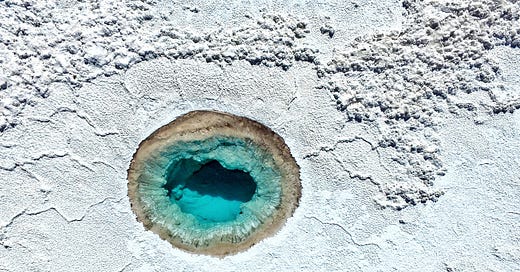Seen and Unseen
Women's History Month, Anti-Asian hate crimes and opening our eyes to those on the margins.
(Photo by Benjamín Gremler on Unsplash)
Based on a friend’s recommendation, I took a 45-minute Peloton class dedicated to Women’s History Month. The time just flew by as we rocked out to instructor Christine’s curated playlist of strong powerful women with deep messages for all of us. My favorite part was when I just closed my eyes, dug deep, let my body work and my mind conjure up what I needed to hear in that moment. The image that kept appearing was of me wrapping my arms around myself and giving myself love and support. I see you, I told myself.
Women especially suffer from being invisible, especially those in marginalized groups or women of color. I am still reeling from the senseless acts of violence perpetrated against Asian women in Atlanta. Asian Americans have been targets for some time fueled by the hateful rhetoric of our former president and connections to the ‘China virus’. They have been viewed suspiciously and I remember making decisions to patronize certain businesses because they are Asian just as I did black-owned. I heard that there was a time Chinatown in NYC was rather empty in contrast to its usual feel. Honestly, it feels like it was only a matter of time before the suspicions turned to violence.
But the murderer claims race was not part of his equation. But wasn’t it? Wasn’t the fact that these were women of Asian descent, who worked at places designed to provide services to others, who are viewed as exotic and are objectified and sexualized, play a significant role in what happened? The constant “othering” of them in our society laid the groundwork for such an atrocity to occur. How do we train our eyes to see what and who is right in front of us?
My mind turns to the story of Hagar from the Torah in the book of Genesis, a person both seen and unseen. Even her name sets her apart. Hagar is like HaGer, the stranger, and she is certainly treated as an outsider, despite the fact that her mistress, Sarah, willingly offers her to her husband, Abraham, to create a child that she is unable to provide. Hagar runs away twice and encounters the Divine both times: the first to encourage her to return with the promise of offspring and the second time to save her son from death. In the second story, she and her son Ishmael flee their lives as second-class citizens, but they lack enough food and water to survive the harsh desert. Hagar walks away from her son crying so as not to see him die. An angel of God intervenes to show her a well of water nearby for her to give her son lifesaving water. Her eyes were opened and she saw the well. It is not clear from the text if it simply appeared there for her or if it had been there all along and she had not been able to see it.
While the story reminds us that there are often potentially lifesaving interventions around us that we may need to open our eyes to, it also reminds us that the stories of marginalized people are often hidden or brushed aside. Hagar herself, in terms of her feelings, ambitions and contributions, experiences this acutely. Like so many women in our ancient stories, her life is a means to end for other characters. Telling her story opens our eyes to her plight and the stories of so many other women relegated to the margins. I just read a letter to the Jewish community by Jewish Asian American, Mira Baum. Her painful letter is a reminder that even in our own communities, there is racism at worst and ignorance at best. We can and must do better by calling out hate when we recognize it and reaching out to those who may be impacted through our shared humanity.
Women’s History Month brings to light the stories of so many women and their messages of empowerment, of not letting others’ opinions of us diminish our light, of standing strong and persevering. Those lessons came to them through all kinds of struggle. Still, I wonder: Who are the women whose light we are missing? Where do we need to direct our attention to make sure we are not leaving people at the edges, on the borders, in the desert? Our work is far from over, as women, people of faith, people of conscience and people of action.




so powerful!
Amen!